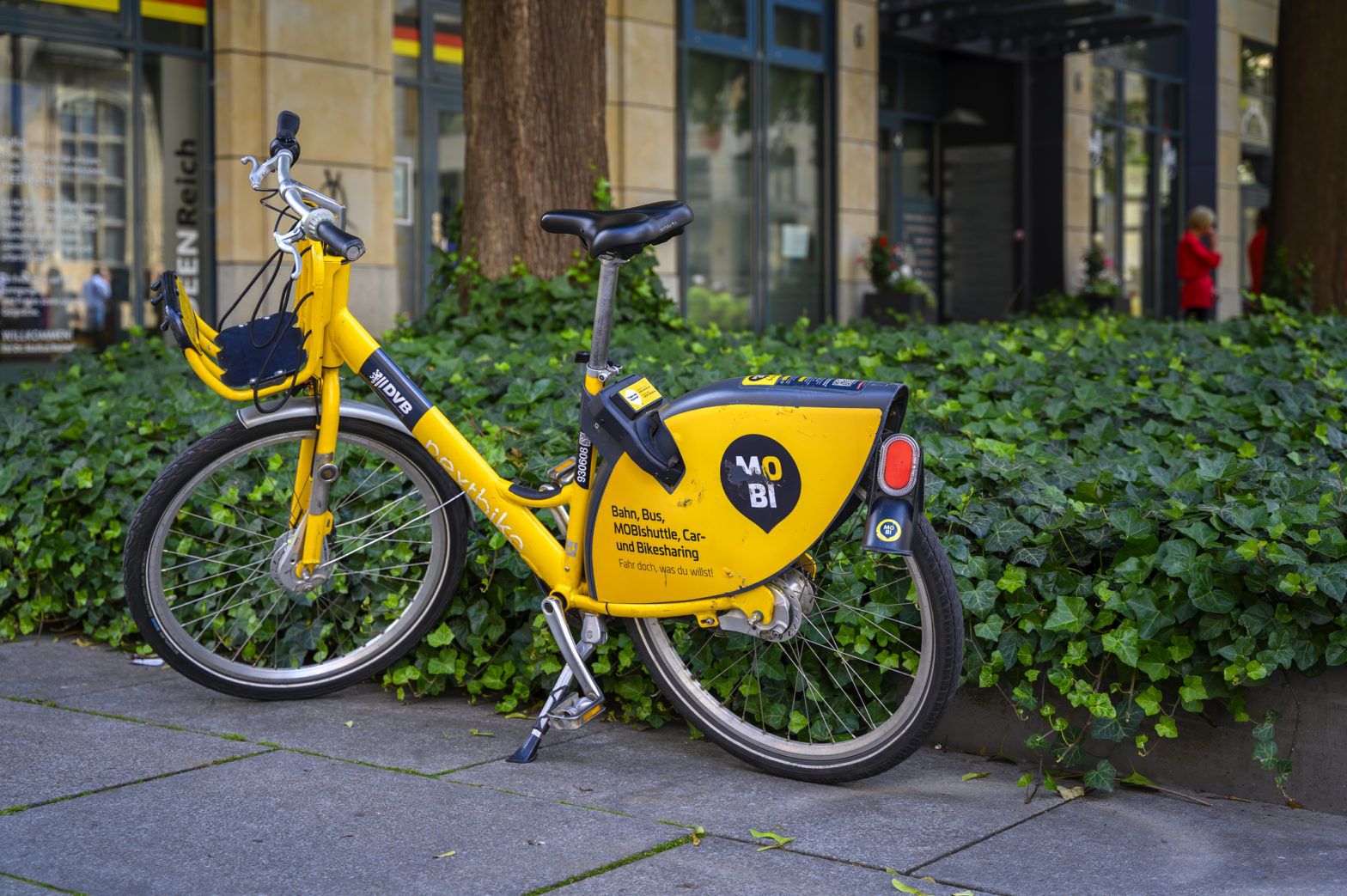
Bike share ‘not a climate gadget’, say industry heads
21 May 2025
by William Thorpe
Bike share leaders have called on cities to move beyond pilot thinking and treat shared bicycles as a permanent, integrated part of the public transport system–not an optional add-on.
Speaking during Cycling Industries Europe’s webinar The Perfect Bike Share Scheme, senior figures from Lyft, Dott, nextbike and Inurba Mobility urged municipalities to rethink how schemes are governed, funded and integrated into broader transport and climate policy.
“The perfect bike sharing for me is a regular mode of public transport,” said Marieke Rauchhaus, Director of Comms and Public Policy at nextbike. “It’s a public service and well established in the city’s mobility concept. It’s not just a nice, isolated climate saving measure.”
She pointed to Dresden (pictured) as a model of full integration, where bike share is branded and ticketed under the city’s multimodal ‘MOBI’ platform and included in public transport passes.
Caroline Samponaro, Head of External Affairs at Lyft Urban Solutions, warned that bike share must occupy physical and political space in order to be effective.
“Taking that physical space in cities is part of what makes a system great,” she said. “It makes it permanent. It makes it reliable and dependable. And it means we can really invest in it from a public sector perspective, from a private sector perspective–bringing all of our talents to bear to make sure that it’s a system that delivers like a transit system.”
Maxim Romain, Co-founder and President of Dott, called for governance reform, warning that fragmented city-by-city licensing is undermining user experience.
“We need to stop differentiating between private and public,” he said. “These are private companies that are behind running them. So I think proactively we need to stop differentiating… and really think holistically about, okay, what kind of contracts do we want to offer.”
Infrastructure and affordability were highlighted as key factors in system success. Samponaro cited Zaragoza, where all stations include charging infrastructure.
“E-bike availability is over 95 percent,” she said. “This is allowing us to deliver trips per e-bike per day in that system, while also driving down the operational costs.”
Rauchhaus underscored the economic argument: “In 2024 a return of interest study was made, which showed that every euro invested brings €1.80 associated benefits. And the forecast is up to earning €5 for each euro if the expansion continues until 2030.”
As many European schemes pass their 10-year mark, operators are pushing for longer-term investment models.
“Bike sharing complements flexibly mass transportation during peak and off-peak hours… and must be part of all political support, over all parties. The mayor should be the first user,” said Rauchhaus.
Cycling Industries Europe will continue the conversation at the Velo-city conference in Gdańsk this June and is due to release two new studies in September–one on return on investment in bike share, and another benchmarking bike share systems across Europe.
Samponaro added: “Now’s the time to think about that long-term sustainability of getting bike share to the next step–scaling its impact, tying it more deeply into larger environmental goals in cities around Europe and the world.”
Image: Cbechinie | Dreamstime.com











